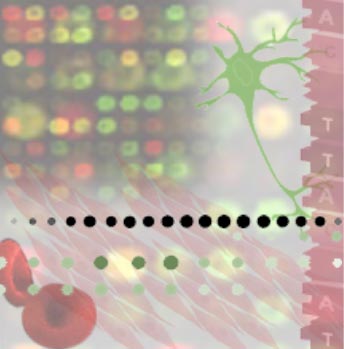Concept 36 Different genes are active in different kinds of cells.

Most living things are composed of different kinds of cells specialized to perform different functions. A liver cell, for example, does not have the same biochemical duties as a nerve cell. Yet every cell of an organism has the same set of genetic instructions, so how can different types of cells have such different structures and biochemical functions? Since biochemical function is determined largely by specific enzymes (proteins), different sets of genes must be turned on and off in the various cell types. This is how cells differentiate.
This notion of cell-specific expression of genes is upheld by hybridization experiments that can identify the unique mRNAs in a cell type. More recently, DNA arrays and gene chips offer the opportunity to rapidly screen all gene activity of an organism. Co-expression of genes in response to external factors can thus be explored and tested.
 DNA is packaged in a chromosome.
DNA is packaged in a chromosome. Higher cells incorporate an ancient chromosome.
Higher cells incorporate an ancient chromosome. Some DNA does not encode protein.
Some DNA does not encode protein. Some DNA can jump.
Some DNA can jump. Genes can be turned on and off.
Genes can be turned on and off. Genes can be moved between species.
Genes can be moved between species. DNA responds to signals from outside the cell.
DNA responds to signals from outside the cell. Different genes are active in different kinds of cells.
Different genes are active in different kinds of cells. Master genes control basic body plans.
Master genes control basic body plans. Development balances cell growth and death.
Development balances cell growth and death. A genome is an entire set of genes.
A genome is an entire set of genes. Living things share common genes.
Living things share common genes. DNA is only the beginning for understanding the human genome.
DNA is only the beginning for understanding the human genome.